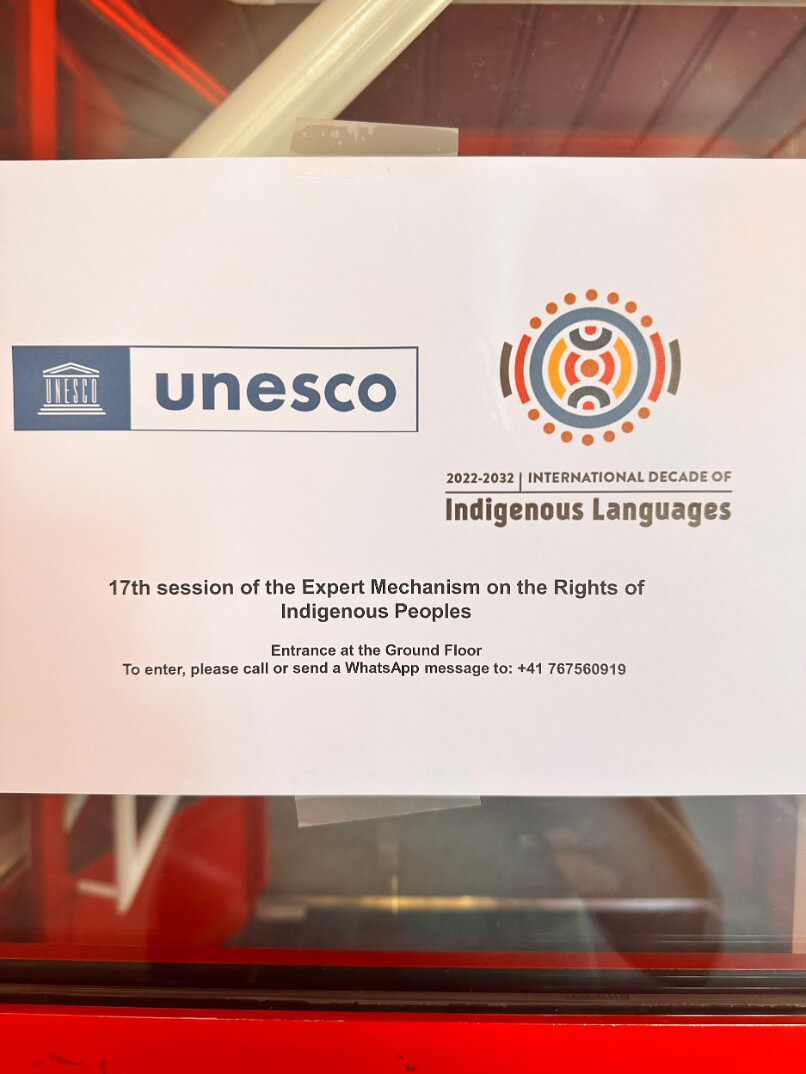Serendipity at UNESCO: Stumbling upon this poster for the Expert Mechanism on the Rights of Indigenous Peoples session organized by the UNESCO Liaison Office, whom we share a building with, perfectly aligns with my work on multilingual education. It's moments like these that highlight the interconnectedness of UNESCO's efforts and the real-world relevance of our fellowship projects.
Reflecting on my journey so far, the past two months at UNESCO-IBE have been nothing short of transformative. From engaging in critical curriculum development discussions to witnessing the profound impact of educational initiatives, every day has reinforced why I am here and the value of the UNESCO fellowship program with GW.
Immersed in Impactful Projects
My work on multilingual education initiatives in sub-Saharan Africa, particularly in Madagascar, continues to be a highlight. Collaborating with seasoned experts has given me a deep understanding of how language policies can uplift student outcomes on a national scale. We've explored innovative approaches to integrate local languages into the curriculum, ensuring that education is both accessible and relevant. For instance, we're preparing for a consultancy on language of instruction where we are advocating for Malagasy to be used in an additive language model which will later serve as a bridge to learning French, the current language of instruction. This approach not only preserves cultural heritage but also enhances comprehension and engagement among students.
The Power of Global Citizenship
A recent trip to Milan and Ticino during my birthday week further cemented my belief in the importance of global citizenship. An unexpected encounter with the Italian authorities became a stark reminder of the biases and inequalities that persist even in "progressive" societies. My ability to speak Italian, a skill I honed out of passion, proved invaluable. It reminded me of Nelson Mandela's wisdom: "If you talk to a man in a language he understands, that goes to his head. If you talk to him in his language, that goes to his heart." This experience highlighted how language is a roadmap to culture and empathy, crucial for global citizenship.
Looking Ahead
As I move forward in this fellowship, I am more committed than ever to advocating for educational reforms that prioritize empathy, inclusivity, and justice. The path to true global equality is long, but education - when genuinely decolonized - can be our most powerful tool for change.
The UNESCO fellowship program has provided me with unparalleled opportunities to engage with experts, contribute to meaningful projects, and gain a global perspective on education. The experience goes beyond academic growth; it's about contributing to a vision of a more equitable world through education. As future educators and policymakers, we must strive to create educational systems that foster empathy, cultural awareness, and global perspectives.
Here's to continuing this journey, pushing boundaries, and striving for a more just and equitable global society.
Oummou Diallo is a Master’s candidate in the International Education Program at the George Washington University. Her research focuses on social justice, critical inquiry, and the impacts of colonial legacies on marginalized communities, particularly in the context of education and youth development in sub-Saharan Africa.






